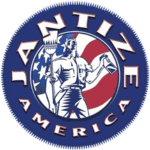Jantize America offers two distinct franchising models for entrepreneurs looking to enter the commercial cleaning industry: the Area Developer (Master Franchise) and the Unit Franchise. While both models fall under the same overarching Jantize brand and system, they cater to very different types of entrepreneurs in terms of roles, responsibilities, investments, and potential for growth. Understanding these two models is crucial for aspiring franchisees to decide which path aligns best with their business goals, financial capacity, and long-term vision.

This article will explore the core differences between Jantize’s Area Developer and Unit Franchise offerings, providing insights into each model’s benefits, responsibilities, and financial requirements. We will also dive into the potential revenue streams and daily operations involved, giving you a comprehensive view of how these models operate within the Jantize system.
1. The Jantize Area Developer (Master Franchise) Model
The Jantize Area Developer, also known as a Master Franchise, is a higher-level business opportunity designed for entrepreneurs who want to take on a leadership role and oversee a large geographical area. Area Developers are not directly involved in the cleaning operations; instead, they manage and develop a network of Unit Franchise owners within a specified territory. This model appeals to individuals who prefer a management and business development role over hands-on operations.
Key Responsibilities of an Area Developer
The primary role of the Area Developer is to build and manage a network of Unit Franchisees within their assigned region. As an Area Developer, your key responsibilities include:

- Recruiting Unit Franchisees: One of the main tasks is to attract and recruit local entrepreneurs who are interested in operating a Unit Franchise under the Jantize brand. You will work closely with these franchisees, helping them understand the Jantize business model and guiding them through the onboarding process.
- Supporting and Training Franchisees: Once Unit Franchisees are on board, the Area Developer provides ongoing training and support to ensure they are equipped with the knowledge and tools needed to run a successful business. This support can include operational guidance, marketing strategies, and help with customer acquisition.
- Business Development: Area Developers focus on expanding Jantize’s presence within their territory by selling additional Unit Franchises and growing the number of commercial cleaning clients. This involves a mix of sales, marketing, and relationship-building with local businesses.
- Territory Management: As an Area Developer, you are responsible for the overall growth and success of your designated territory. You ensure that franchisees are meeting Jantize’s operational standards and that the brand’s reputation remains strong in the market.
Revenue Streams for Area Developers
One of the most attractive aspects of the Area Developer model is the multiple revenue streams available. Unlike a Unit Franchise owner, who relies solely on income from providing cleaning services, an Area Developer benefits from:
- Franchise Fees: Every time a new Unit Franchise is sold within your territory, you earn a portion of the initial franchise fee paid by the franchisee.
- Royalties: As Unit Franchisees generate revenue from their cleaning contracts, Area Developers earn a percentage of the ongoing royalties. This provides a consistent, passive income stream based on the success of the franchisees under your supervision.
- Additional Fees: Depending on the specific agreement, Area Developers may also earn fees related to marketing support, operational assistance, or training provided to their Unit Franchisees.
This model offers the potential for scalability and higher long-term earnings, as the Area Developer’s income grows in proportion to the number of Unit Franchisees and the overall success of the territory.
Investment and Startup Costs for Area Developers
Becoming a Jantize Area Developer requires a significant upfront investment, as you are essentially purchasing the rights to develop and manage an entire region. The cost can vary depending on the size and potential of the territory, but the initial investment is generally higher than that of a Unit Franchise. This investment includes:
- The rights to a large, exclusive territory.
- Marketing materials and support for recruiting franchisees.
- Training and ongoing support from Jantize headquarters.
- Potential costs for hiring staff to assist with business development and franchisee support.
Because of the larger financial commitment, the Area Developer model is typically suited for experienced entrepreneurs who have the resources to invest in and grow a business over a longer period.
2. The Jantize Unit Franchise Model
On the other side of the spectrum, Jantize’s Unit Franchise model is designed for individuals who want to operate a more hands-on business, providing commercial cleaning services directly to local clients. This model is ideal for entrepreneurs who prefer to be actively involved in the day-to-day operations of their business while benefiting from the support of a larger franchising system.
Key Responsibilities of a Unit Franchise Owner
As a Unit Franchise owner, you will be responsible for running your own cleaning business under the Jantize brand. This includes:
- Providing Cleaning Services: The core responsibility is delivering high-quality commercial cleaning services to businesses in your local area. This can range from office buildings and retail spaces to healthcare facilities and industrial sites.
- Managing Operations: While the Area Developer focuses on territory-wide business development, the Unit Franchise owner is responsible for managing the daily operations of their cleaning business. This includes scheduling, staffing, equipment maintenance, and ensuring customer satisfaction.
- Client Acquisition and Retention: Although the Area Developer may assist with marketing and lead generation, Unit Franchisees must build strong relationships with their clients to ensure repeat business and long-term contracts.
- Hiring and Training Staff: Depending on the size of your business, you may need to hire and manage a team of cleaning staff. Ensuring that employees are trained and adhere to Jantize’s standards is crucial for maintaining the brand’s reputation.
Revenue Streams for Unit Franchise Owners
Unit Franchisees generate revenue by providing cleaning services to commercial clients. The primary source of income comes from the contracts you secure for ongoing cleaning services. These contracts can vary in size and frequency, depending on the client’s needs.
While the income potential may be more localized than that of an Area Developer, Unit Franchisees have the advantage of lower startup costs and the ability to grow their business through direct operational involvement. Additionally, they can scale by expanding their client base or taking on larger contracts over time.
Investment and Startup Costs for Unit Franchise Owners
The initial investment for a Jantize Unit Franchise is lower compared to the Area Developer model, making it a more accessible option for entrepreneurs who may have limited capital but are eager to start their own business. The investment typically includes:
- The franchise fee, which grants you the right to operate under the Jantize brand.
- Equipment, supplies, and materials needed to provide cleaning services.
- Training and ongoing support from the Area Developer and Jantize corporate.
- Marketing and lead generation assistance to help you acquire your first clients.
Because the Unit Franchise model involves direct service delivery, the investment is more operationally focused than that of the Area Developer. It is ideal for those who want to be actively involved in the business and grow it organically over time.
3. Comparing the Area Developer and Unit Franchise Models
While both the Area Developer and Unit Franchise models offer lucrative opportunities, they cater to different types of entrepreneurs. Let’s compare the key differences between the two:
| Aspect | Area Developer | Unit Franchise |
|---|---|---|
| Role | Oversees and manages Unit Franchisees in a large territory | Directly provides cleaning services in a localized area |
| Responsibilities | Recruiting, training, and supporting franchisees; business development | Managing daily cleaning operations, client acquisition, and staffing |
| Revenue Streams | Franchise fees, royalties, and additional service fees | Income from cleaning contracts and services |
| Investment | Higher initial investment for territorial rights | Lower initial investment, focused on equipment and operations |
| Business Model | Scalable, passive income through franchisee management | Hands-on, operationally focused with direct involvement |
| Growth Potential | High scalability, with multiple revenue streams and large territory | Gradual growth through expanding client base and contracts |
| Time Commitment | Focused on business development and management, less day-to-day involvement | Daily operational involvement, with potential to scale over time |
| Target Entrepreneur | Experienced entrepreneurs with management experience and larger capital | Hands-on operators looking for a lower-cost, local business opportunity |
4. Which Model is Right for You?
The choice between Jantize’s Area Developer and Unit Franchise models ultimately depends on your personal preferences, financial situation, and long-term business goals. Here are a few questions to consider when deciding:
- Are you more interested in managing a team and developing a business, or would you prefer to be directly involved in operations?
- If you enjoy managing others, overseeing a larger territory, and focusing on business development, the Area Developer model may be the right fit. On the other hand, if you prefer direct involvement in the day-to-day operations, the Unit Franchise offers a hands-on approach to building a cleaning business.
- How much capital are you willing to invest?
- The Area Developer model requires a larger upfront investment but offers the potential for higher earnings through multiple revenue streams. The Unit Franchise model is more affordable, making it an accessible entry point for entrepreneurs with limited capital.
- What is your long-term vision for growth?
- If you want to scale your business by managing multiple franchisees and developing a large territory, the Area Developer model provides the structure for rapid growth. However, if you prefer to focus on building a smaller, localized business, the Unit Franchise model allows you to grow at your own pace.
Conclusion
Both the Jantize Area Developer and Unit Franchise models offer distinct advantages and cater to different entrepreneurial goals. The Area Developer model appeals to those looking for a higher-level business opportunity with multiple revenue streams, while the Unit Franchise model is ideal for hands-on operators seeking a more affordable way to start their own business.
Whichever path you choose, Jantize provides the support, training, and brand recognition needed to build a successful business in the growing commercial cleaning industry. Whether you aim to develop a large territory or operate a local cleaning service, Jantize offers the tools and resources to help you succeed.
 Jantize
Jantize 
